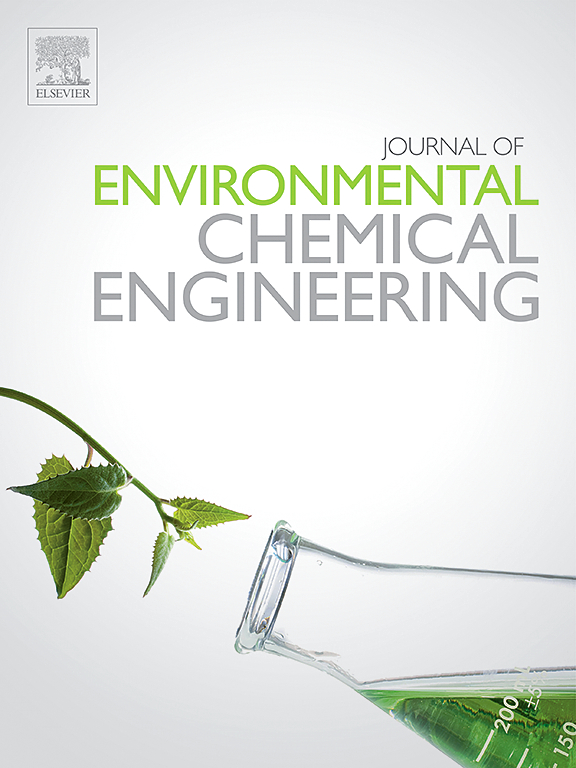Environmental and life cycle assessment of organic Rankine cycle technology for industrial waste heat recovery
IF 7.4
2区 工程技术
Q1 ENGINEERING, CHEMICAL
引用次数: 0
Abstract
Industrial waste heat recovery offers a significant opportunity to improve energy efficiency and reduce emissions, supporting carbon neutrality and sustainable development. Among various technologies, the organic Rankine cycle (ORC) stands out as a leading technology to exploit low-to-medium temperature heat sources for power generation. While the technical and economic aspects of ORC technology have been extensively studied, research on its sustainability profiles remains fragmented in the literature. This study provides a structured and comprehensive review of life cycle assessment (LCA) research on ORC systems in industrial applications. By systematically analyzing methodological choices such as functional units, system boundaries, inventory data, and impact assessment approaches, this review identifies key inconsistencies, research gaps, and sources of environmental burden across diverse industrial heat sources. The analysis reveals that component material composition, particularly of turbines and heat exchangers, and the choice of working fluids (e.g., low-GWP alternatives) significantly influence lifecycle impacts. It also emphasizes that cycle layout and system configuration can critically affect environmental outcomes. This work integrates fragmented LCA knowledge on ORC technology and proposes future research directions focused on standardized evaluation frameworks, improved data transparency, and sustainability-oriented system design. The findings offer practical guidance for researchers, policymakers, and engineers to improve the environmental and economic viability of ORC-based waste heat recovery solutions.
工业废热回收有机朗肯循环技术的环境与生命周期评价
工业废热回收为提高能源效率和减少排放、支持碳中和和可持续发展提供了重要机会。在各种技术中,有机朗肯循环(ORC)作为一种利用中低温热源发电的领先技术脱颖而出。虽然对ORC技术的技术和经济方面进行了广泛的研究,但对其可持续性概况的研究在文献中仍然是零散的。本研究对工业应用中ORC系统的生命周期评估(LCA)研究进行了结构化和全面的回顾。通过系统地分析方法选择,如功能单元、系统边界、库存数据和影响评估方法,本综述确定了不同工业热源的关键不一致性、研究差距和环境负担来源。分析表明,组件材料组成,特别是涡轮机和热交换器,以及工作流体的选择(例如,低gwp替代品)显著影响生命周期的影响。它还强调循环布局和系统配置可以严重影响环境结果。本工作整合了ORC技术的碎片化LCA知识,并提出了未来的研究方向,重点是标准化评估框架、提高数据透明度和面向可持续性的系统设计。研究结果为研究人员、政策制定者和工程师提供了实用的指导,以提高基于orc的废热回收解决方案的环境和经济可行性。
本文章由计算机程序翻译,如有差异,请以英文原文为准。
求助全文
约1分钟内获得全文
求助全文
来源期刊

Journal of Environmental Chemical Engineering
Environmental Science-Pollution
CiteScore
11.40
自引率
6.50%
发文量
2017
审稿时长
27 days
期刊介绍:
The Journal of Environmental Chemical Engineering (JECE) serves as a platform for the dissemination of original and innovative research focusing on the advancement of environmentally-friendly, sustainable technologies. JECE emphasizes the transition towards a carbon-neutral circular economy and a self-sufficient bio-based economy. Topics covered include soil, water, wastewater, and air decontamination; pollution monitoring, prevention, and control; advanced analytics, sensors, impact and risk assessment methodologies in environmental chemical engineering; resource recovery (water, nutrients, materials, energy); industrial ecology; valorization of waste streams; waste management (including e-waste); climate-water-energy-food nexus; novel materials for environmental, chemical, and energy applications; sustainability and environmental safety; water digitalization, water data science, and machine learning; process integration and intensification; recent developments in green chemistry for synthesis, catalysis, and energy; and original research on contaminants of emerging concern, persistent chemicals, and priority substances, including microplastics, nanoplastics, nanomaterials, micropollutants, antimicrobial resistance genes, and emerging pathogens (viruses, bacteria, parasites) of environmental significance.
 求助内容:
求助内容: 应助结果提醒方式:
应助结果提醒方式:


